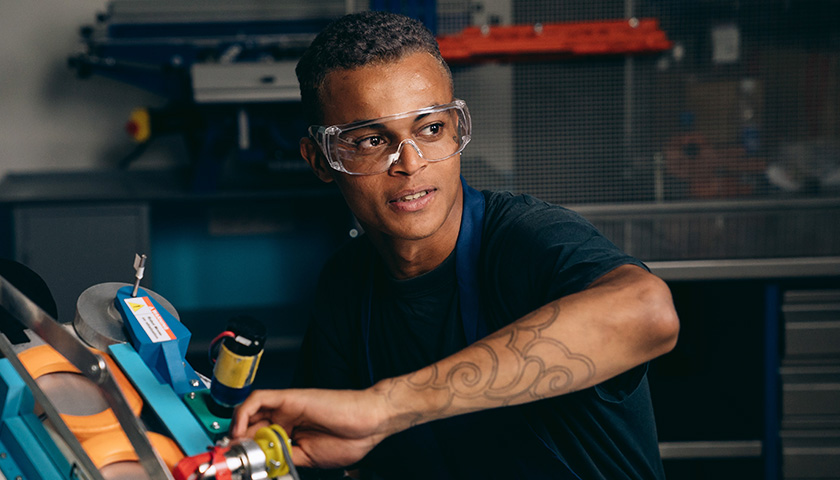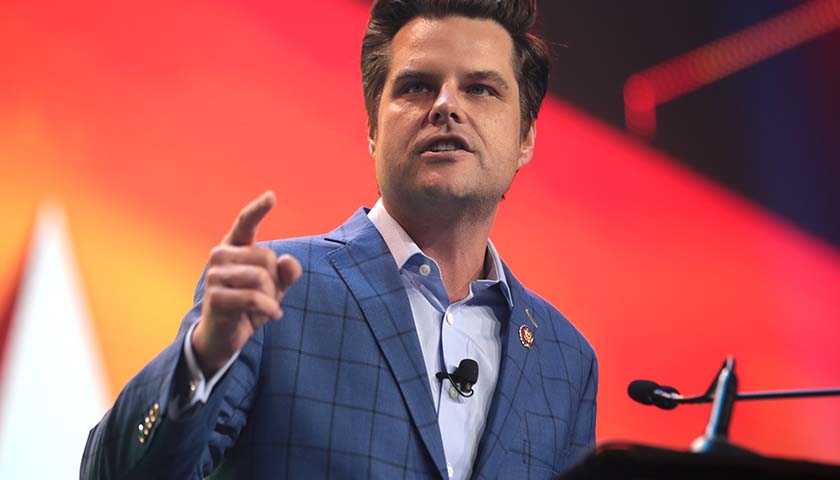by John Hugh DeMastri
The Biden administration announced a $2.8 billion investment in U.S.-based battery manufacturing Wednesday that contributed to the administration’s commitment to diversity, equity, inclusion and accessibility (DEIA) initiatives.
The administration selected 20 companies to receive awards from the Bipartisan Infrastructure Law, signed into law in November 2021, with projects evaluated by their ability to “contribute meaningfully” to the administration’s Justice40 initiative, which sets a target of 40% of all federal clean energy investments benefitting “disadvantaged and underrepresented communities,” the Department of Energy (DOE) announced Wednesday.
The award will result in the construction of 5 new facilities in “disadvantaged communities,” with 15 located adjacent, according to the DOE. Of the 21 total projects, 15 will involve collaboration between companies and Historically Black Colleges and Universities, and are expected to create a total of 5,000 permanent jobs.
“This U.S.-based high-tech demonstration plant will employ a workforce of up to 150, including a minimum of 40% of new employees coming from disadvantaged communities and being paid wages higher than the prevailing rate,” said materials fabricator 6k Inc., who received $50 million, according to the DOE. “Diversity, equity, inclusion, and accessibility principles are incorporated into all aspects of the project and 6K will work with local and regional workforce development agencies to create training and intern programs with high schools, technical and community colleges, and local universities.”
NEWS >> @POTUS announces first Bipartisan Infrastructure Law projects to expand domestic battery manufacturing
Twenty companies across 12 states will boost production of key EV materials/technologies, lower costs, and create new domestic supply chains. https://t.co/YxzG61k56K
— Charisma Troiano (@ENERGYSpox) October 19, 2022
 Talon Nickel received nearly $115 million and committed to undergoing “rigorous state and federal permitting and environmental review processes that include government-to-government consultations with sovereign tribal governments,” according to the DOE. The company, who is contracted to process nickel ore on behalf of Tesla, also noted that it had “concluded a neutrality and workforce development agreement with the United Steelworkers Union, covering the new jobs created at the new facility in North Dakota”
Talon Nickel received nearly $115 million and committed to undergoing “rigorous state and federal permitting and environmental review processes that include government-to-government consultations with sovereign tribal governments,” according to the DOE. The company, who is contracted to process nickel ore on behalf of Tesla, also noted that it had “concluded a neutrality and workforce development agreement with the United Steelworkers Union, covering the new jobs created at the new facility in North Dakota”
Ascend Elements was awarded more than $480 million across two separate projects, and “plans to offer community benefits such as workforce training and education, affordable childcare, and affordable transportation initiatives to raise equity levels in the greater Hopkinsville community,” according to the DOE. Ascend Elements makes materials for batteries out of recycled components, according to its website.
“A primary consideration for ENTEK’s site is early community engagement to provide community benefits based on local need,” said chemical manufacturer ENTEK, who was awarded $200 million. “While one community might struggle with food accessibility, another prioritizes support for education and employment opportunities in disadvantaged communities.”
While not every project made an explicit commitment to DEIA goals, 10 projects, receiving a combined $1.1 billion in federal funding, committed to a focus on “equity,” according to a DOE fact sheet. One company that received nearly $200,000,000 in federal funding made an explicit commitment to “abide by the Justice40 directive.”
The new investments “will strengthen the American supply chain, accelerate battery production to meet increased demand, and secure the nation’s economic competitiveness, energy independence, and national security,” the DOE said in a statement.
The Department of Energy did not immediately respond to The Daily Caller News Foundation’s request for comment.
– – –
John Hugh DeMastri is a reporter at Daily Caller News Foundation.
Photo “Manufacturing” by Mikhail Nilov.




